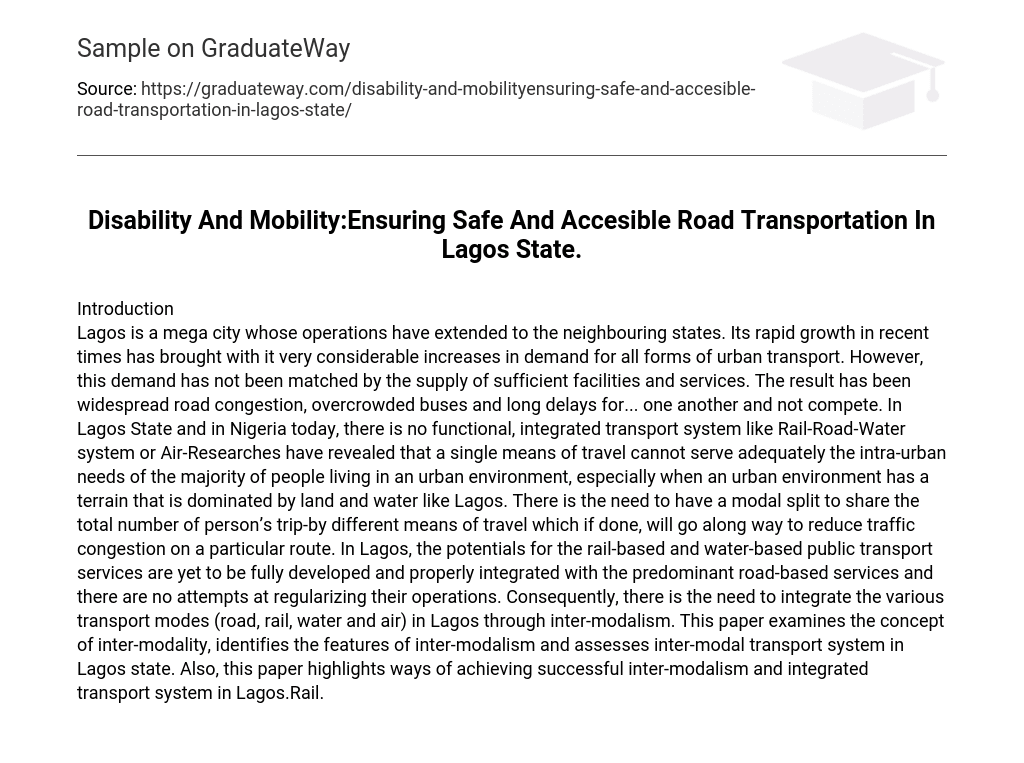Introduction
Lagos is a mega city whose operations have extended to the neighbouring states. Its rapid growth in recent times has brought with it very considerable increases in demand for all forms of urban transport. However, this demand has not been matched by the supply of sufficient facilities and services.
The result has been widespread road congestion, overcrowded buses and long delays for… one another and not compete. In Lagos State and in Nigeria today, there is no functional, integrated transport system like Rail-Road-Water system or Air-Researches have revealed that a single means of travel cannot serve adequately the intra-urban needs of the majority of people living in an urban environment, especially when an urban environment has a terrain that is dominated by land and water like Lagos. There is the need to have a modal split to share the total number of person’s trip-by different means of travel which if done, will go along way to reduce traffic congestion on a particular route.
In Lagos, the potentials for the rail-based and water-based public transport services are yet to be fully developed and properly integrated with the predominant road-based services and there are no attempts at regularizing their operations. Consequently, there is the need to integrate the various transport modes (road, rail, water and air) in Lagos through inter-modalism. This paper examines the concept of inter-modality, identifies the features of inter-modalism and assesses inter-modal transport system in Lagos state. Also, this paper highlights ways of achieving successful inter-modalism and integrated transport system in Lagos.Rail.





